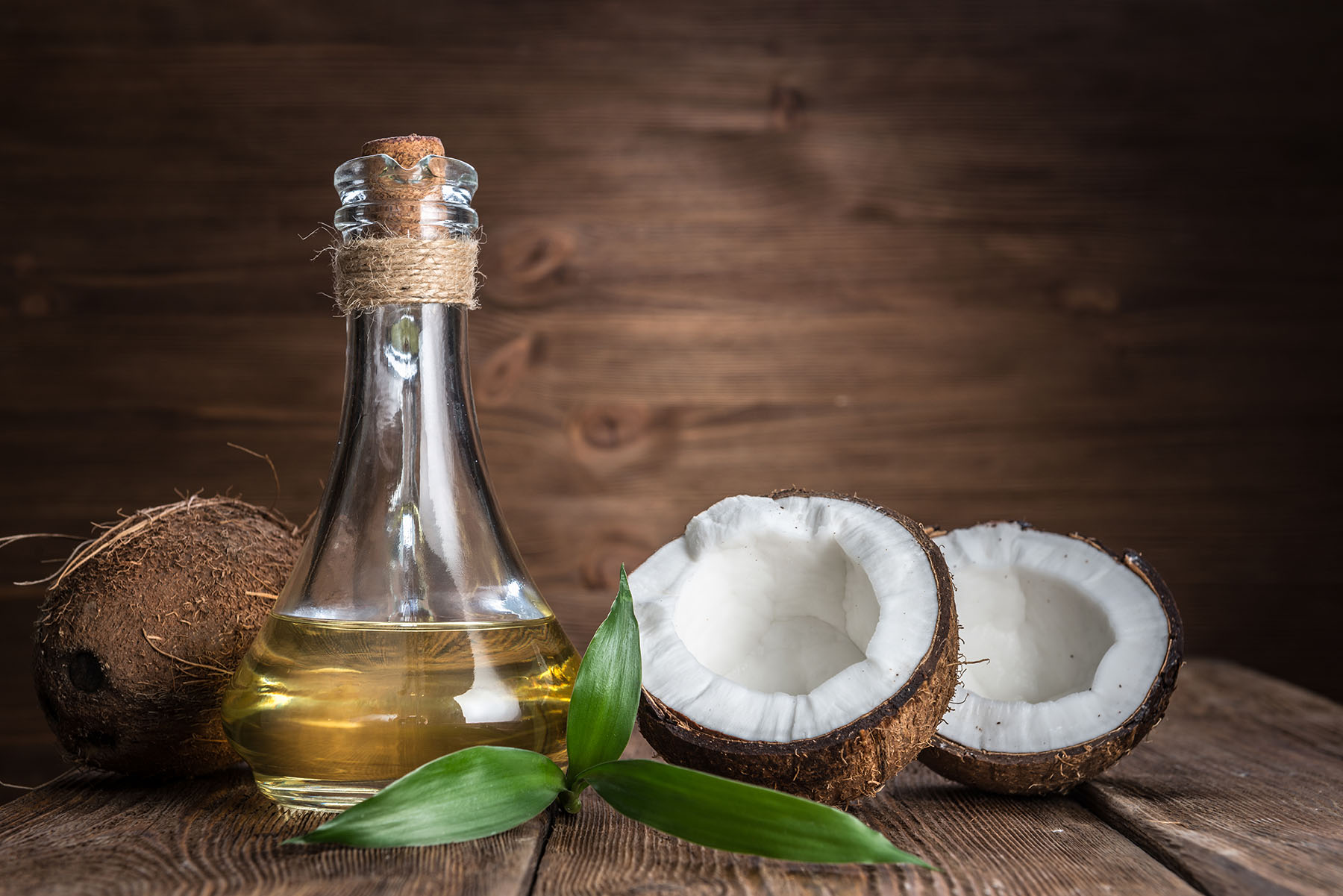The Skinny on Coconut Oil

How healthy is it? A registered dietitian nutritionist tackles the question of coconut oil.
When I started my study of nutrition 30 years ago, that big block of coconut oil you see in jars was considered a giant no-go food. About 10 years ago, through the power of the Internet, coconut oil started on the path to rehabilitation. The truth about coconut oil lies somewhere in the middle.
A recent Presidential Advisory from the American Heart Association stated that lowering intake of saturated fat and replacing it with unsaturated fats, especially polyunsaturated fats, will lower the incidence of cardiovascular disease and thus is better for your heart.
According to the American Heart Association, “An analysis of more than 100 published research studies dating as far back as the 1950s reaffirmed that saturated fats raise LDL or ‘bad’ cholesterol. … The authors reported that coconut oil raised LDL cholesterol in seven controlled trials.”
And a study comparing a diet rich in coconut oil to diets rich in beef fat or safflower oil found that “coconut oil can increase both HDL [‘good’ cholesterol] and LDL cholesterol.”
So where does that leave coconut oil, which is about 90 percent saturated fat?
Coconut oil and your health
Coconut oil is unique because its saturated fatty acids are mostly medium chain fatty acids (MCT), and of these about 45-50 percent are lauric acid, which has demonstrated anti-inflammatory and antimicrobial benefits. Dietitians are familiar with MCT oils as they have been used for patients with certain metabolic disorders or malnutrition for many years.
There is evidence showing that coconut oil might actually increase levels of HDL cholesterol and have little or no effect on total LDL cholesterol levels. This could lead to a better HDL/LDL ratio. Another study showed that it raised both HDL and LDL blood cholesterol levels.
And one study showed that “taking coconut oil three times daily might reduce waist size after 1-6 weeks of use. But this occurred only in men and did not affect weight or body mass index.”
This was contradicted by a study from 2017 that explored the effects of coconut oil on overweight women. Energy metabolism, cardiometabolic risk markers and appetitive responses were analyzed after a trial involving virgin coconut oil. Results found that virgin coconut oil did not burn more fat, did not reduce cardiac risk factors and did not suppress appetite in a way that would lead to reduced food intake.
Is your head spinning yet? Mine is.
At this stage in our ongoing understanding of saturated fats and their relationship to cholesterol levels, it’s recommended that you limit your daily consumption of foods high in saturated fat, including coconut oil. And never forget: one tablespoon of coconut oil has 120 calories.
Coconut oil has a wonderful flavor and is fine for occasional culinary use. Not enough is known about longterm effect on the heart to make it a primary oil. It has a smoke point of 350 degrees, which means it is not for use in high-temperature cooking.
Coconut oil is great for skin, hair and gums.
- Dry skin: Developing research shows that applying coconut oil to the skin twice daily can improve skin moisture in people with dry skin.
- Eczema: Research suggests that for children with eczema, applying virgin coconut oil to the skin twice daily for eight weeks improves symptoms about 30 percent more than mineral oil.
- Fetal and early infant skin infections: Early research suggests that applying coconut oil to babies’ skin daily for 28 days reduces the risk of infection.
- Head lice: Developing research shows that a spray containing coconut oil along with anise oil and ylang ylang oil appears to be effective for treating head lice in children. It seems to work about as well as a spray containing chemical insecticides.
- Newborn weight gain: Some research shows that massaging premature newborns with coconut oil can improve their weight gain and growth.
My favorite tip for coconut oil: When traveling, I take a small container that fits in my quart bag. I use if for makeup removal, moisturizing skin and putting a shine to my hair.
In Their Words Contributor
Sheah Rarback is a registered dietitian nutritionist at the University of Miami Health System.
Tags: cholesterol, coconut oil, diet, eczema, hair and nails, Nutrition, Sheah Rarback
